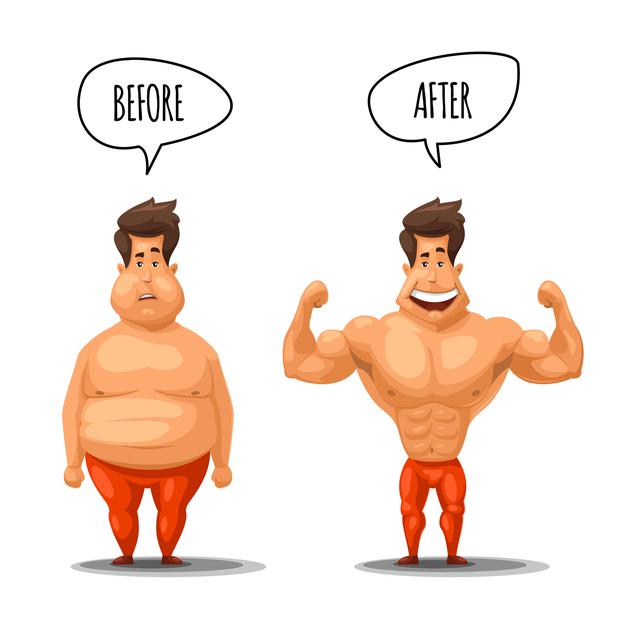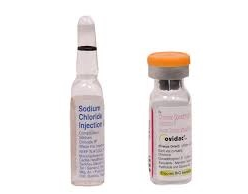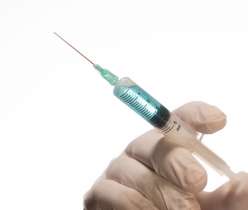Before knowing if the HCG injections are good for weight loss, let’s first understand what is HCG or Human Chorionic Gonadotropin?
It is a hormone that assists in the normal development of an egg in a woman’s ovary and stimulates ovulation, where the egg released during ovulation. HCG is a protein-based hormone that the body secretes during pregnancy. Doctors sometimes prescribe the injectable drug for treating fertility issues in women and hypogonadism in males. The US and food and drug administration or FDA, have approved HCG (we have ovidac 5000 injections) to treat infertility in both men and women. HCG injections can also be given to young boys when their testicles have not normally dropped down into the scrotum. The condition can arise due to a pituitary gland disorder. It has also become popular for weight loss. Several studies show that it can eliminate extreme hunger and redistribute fat—proponents of the HCG diet claim that it targets fat and reduces cravings. However, an HCG diet involves a 500-calorie diet, an extremely low-calorie diet that alone would result in significant weight loss. Definitely, there are risks associated with this low-calorie diet, and medical monitoring is suggested. Some studies have shown that HCG is no more effective, it’s the ultra-calorie diet that produces weight loss results, and potential side effects of HCG injections could be dangerous.
How HCG work for weight loss?
Scientists who discovered the HCG diet claim that this injection boosts metabolism and help you lose a large amount of fat without making you feel hungry. Various theories have emerged to explain the mechanism through which HCG cause weight loss. However, numerous research studies have conducted throughout the year demonstrate that weight loss achieved by the HCG diet is due to the intake of a very low-calorie diet.
The decrease in hunger following an HCG diet is due to the dietary emphasis on high protein intake or carbohydrate restriction resulting in ketosis. This dietary regime is linked to diminished hunger sensation. The weight loss results have nothing to do with the HCG hormone. Doctors usually prescribe HCG or Ovidac 5000 injection to cause ovulation infertile females and increase sperm count in males. It is also effective in treating glandular disorders in women with POS (Polycystic ovary syndrome).
In some cases, HCG can cause blood clots, confusion, dizziness, pain at the injection site, tingling, numbness, and headaches. Women who receive HCG treatment are at increased risk of developing ovarian hyperstimulation syndrome, a life-threatening condition that is more common during the first treatment cycle. Women should be careful of developing symptoms like swollen hands or legs, pelvic pain, shortness of breath, gastrointestinal problems, abdominal pain, and weight gain. Patients who receive HCG shots for weight loss are prone to these side effects.
What are the effects of HCG on the body’s composition?
One common adverse effects of weight loss are reduced muscle mass. This especially common in very low-calorie diet such as the HCG diet that severely restricts calorie intake. Following an HCG diet, your body begins to think it’s starving and reduce the number of calories it burns to conserve energy. However, Researchers of the HCG diet claims that it only causes fat loss, not muscle mass. They also believe that HCG boost metabolism, elevate hormones, and promotes growth. However, there is no evidence to demonstrate such claims. It is so obvious that a low-calorie diet can promote rapid, short-term weight loss, but it is not effective for long-term weight loss.
What needs to be considered?
The US FDA approves drugs for specific indications, and patients are required to report side effects to their health care specialists. Patients following an HCG diet are at risk for side effects caused by the hormone and at risk of developing side effects from the very low-calorie diet. An HCG diet involves an intake of 500 to 550 calories per day from three to seven weeks. According to experts, a healthy adult should consume more than twice that amount to let the body mechanism function properly. Consuming fewer than 800 calories per day can cause deficiencies as it is considered a very low-calorie diet. One should follow such an ultra-calorie diet only under medical supervision.
HCG is also available in the form of drops, capsules, tablets, or gums. Supplements are not harmful if taken under the guidance of a doctor. However, there is no evidence that these over-the-counter preparations are effective enough for weight loss.
The Bottom Line
The HCG diet involves an intake of 500 calories a day for a week, making it an extreme weight loss diet. A very low-calorie diet will make you lose weight. Most of the studies show that it has nothing to do with HCG injections, which is also ineffective in reducing hunger. If you are determined about losing weight, there are plenty of effective and safer ways than the HCG diet. Consult your doctor or dietician to find out the best method that might be right for you.
Also Read: How Does an HCG Injection Help?




